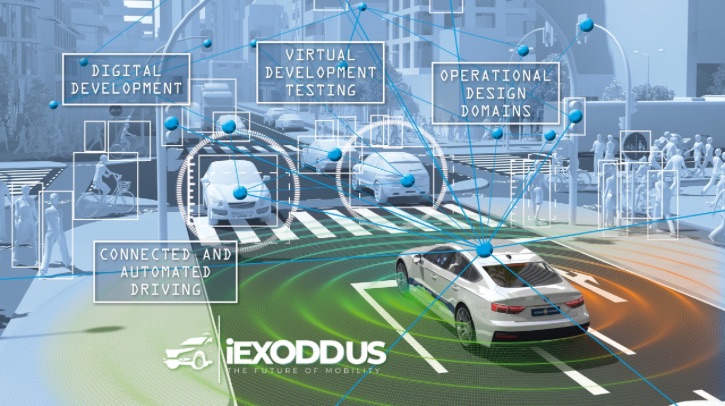The iExoddus project, coordinated by Virtual Vehicle Research and funded by the EU, focuses on advancing autonomous vehicle technology and expanding the capabilities of operational design domains (ODDs) for automated driving systems. This enhances AV performance in complex environments such as roadworks and tunnels, improving traffic safety, and reduces environmental impact.
The project aims to address operational constraints within ODDs, including issues in sensing, behavior prediction and reliability, that limit the potential of automated vehicles. An ODD is fundamental for the safety of connected and automated mobility (CCAM). It describes the specific operating conditions under which CCAM can be used safely.
Expanding the ODD framework is vital to enable AVs to navigate challenging scenarios such as construction zones, unmarked roads and adverse weather conditions. This expansion involves robust perception and decision-making algorithms, reducing human intervention and facilitating integration with human-driven vehicles.
Selim Solmaz, head of the Control Systems Group and lead researcher at Virtual Vehicle, said, “The iExoddus project is at the forefront of advancing digital technologies and navigation services, aligning with goals for increased safety, security and sustainability in the mobility sector, ultimately paving the way for safer and more reliable automated transportation.”
While the benefits are substantial, challenges such as data collection, sensor technology and regulatory frameworks are to be addressed through collaboration. iExoddus combines the expertise of 14 research partners to solve these challenges through resolving harmonization and legal issues and making policy recommendations. Collaboration with industry stakeholders and aiming for real-world demonstrations will enable an industry-tailored approach toward automated driving systems with extended Odds.
Some key benefits include extended ODD and seamless automated mobility, improved traffic safety and flow and less environmental impact; and the use of digital twins for real-time data integration, improving traffic management and helping infrastructure operators manage safer and more efficient roadwork zones.
Torsten Schön, professor for Computer Vision for Intelligent Mobility Systems, THI, added “The iExoddus project will make a major contribution to autonomous mobility on highways throughout Europe by closing current operational gaps and mastering driving from Level 3 even in previously difficult conditions such as roadworks or tunnels. We at THI are very pleased to support this project with our broad expertise in the field of artificial intelligence and vehicle safety.”


